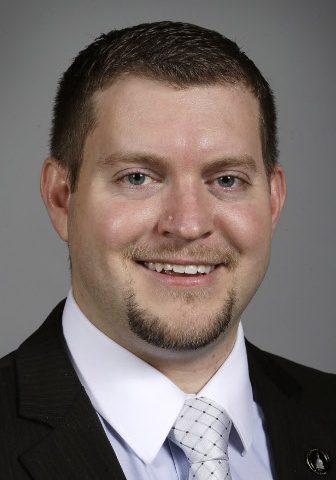Senator Jake Chapman (R-Adel) filed a bill in 2019 that would have required city and county property assessors to stand for retention at the general election or regular city election every four years.
“In a number of states the assessor is an elected position,” Chapman said. “I think it’s important to note that the county assessor has a direct impact on what your property tax is going to be. Yes, they are required to follow the law in creating that fair-market valuation, but what we have seen is a number of protests in which the assessor loses.”
Chapman also said the process for appealing an assessor’s valuation is not right.
“Our system is totally backwards,” he said. “If you want to protest because you don’t think your valuation is accurate, the burden of proof is on you the homeowner. You didn’t come up with that valuation, the assessor came up with that valuation. Yet they do not have to demonstrate how they came up with that valuation. That’s just wrong.”
Ultimately the goal is to make government accountable to the people who pay for the government, Chapman said. The county assessor is overseen by a conference board which is made up of the mayors, the schools and all the supervisors.
Those folks tend to have a vested interest in property valuations increasing as doing so then increases revenue.
“These are very large boards that usually meet twice a year,” Chapman said. “Frankly there’s very little oversight of what the county assessor is doing.”
Arguments during the subcommittee against the bill included the idea that a retention election would politicize the position of assessor.
“The reality is we have retention votes on our judges. We do that so the people ultimately have the say of who works for them,” Chapman said. “And a county assessor should be no different. A conference board appoints who they want to appoint and then the people get to decide whether or not they think the assessor is doing a good job or not.”
It was also brought up that county assessors are only doing a function of government prescribed by law. They said they just do things the way they’re told to do them.
“If that’s the case, why do we have 99 county assessors,” Chapman said. “I’m not necessarily advocating one way or the other, but the question should be why do we have 99 county assessors — why don’t we centralize it under the Department of Revenue if all they’re doing is plugging in numbers to a software system? That just seems like a big inefficiency. But, that’s what they were arguing. I think that’s a dangerous road for the county assessors association to go down.”
With the truth in taxation property tax bill that passed, the hope is some of this issue will be solved. Both bills were rooted in the problem of locally elected folks being able to point the finger at everyone else when it came to taxes.
“For far too long with the assessments, everyone has been pointing the finger at someone else,” Chapman said. “The taxing entities who sit on this conference board can go out there and say ‘well, we didn’t raise taxes.’ While that’s true, they may not have raised the tax levy, they did have their county assessor do the work by increasing valuations. Then the county assessor says they’re not increasing taxes, it’s the city, school and county that sets the levy rate. While there’s partial truth to all of that, it’s just finger pointing instead of holding people accountable.”
Odds are Chapman will keep trying to advance the measure in some form or fashion.
“There’s definitely some value in looking at how our county assessors are overseen and whether it’s really effective,” he said. “The arguments they brought up, I think we ought to be taking a close look at are those statements factual. Are they only plugging numbers into a software to come up with those figures and if so is there a more efficient way we can do this without costing the taxpayers more money in waste and inefficiencies?”
The hysteria the bill caused among county assessors was remarkable, Chapman said.
“It was as though we were ending their profession,” he said. “Again, this is not a new concept in Iowa. We do it with judges and in many, many states it is an elected position. They frankly just don’t have the oversight that I think they should have.”












